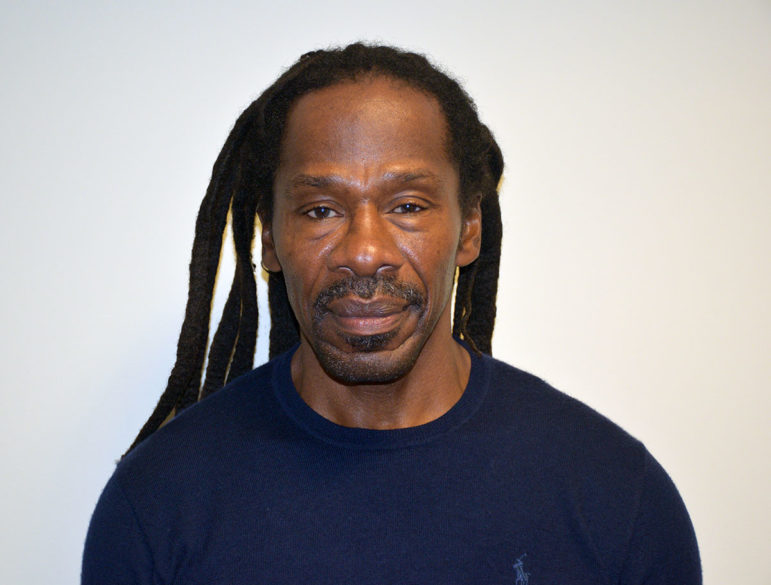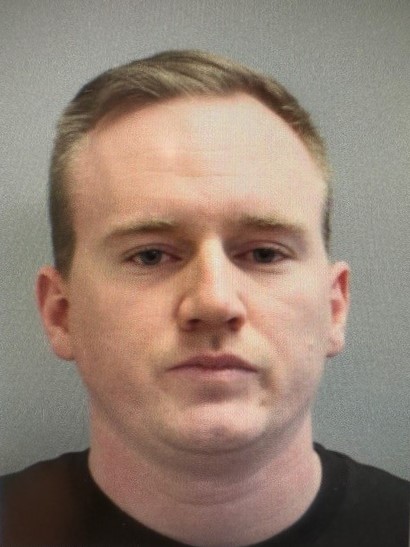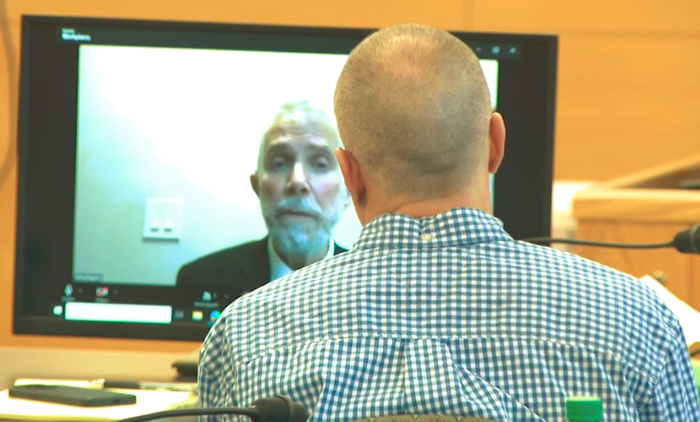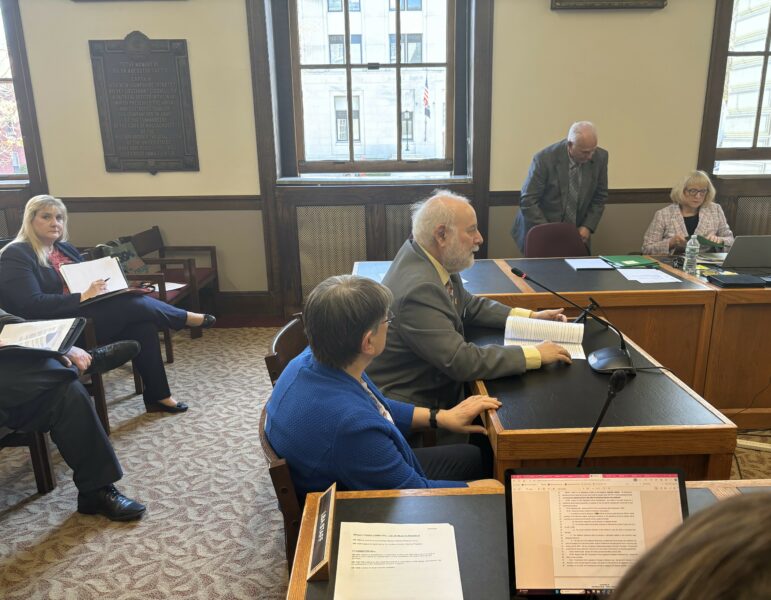By NANCY WEST, InDepthNH.org
Pam Smart’s lawyer says the state should review her case after a Brooklyn, N.Y., judge tossed a murder conviction Friday won decades ago by attorney Paul Maggiotto who also prosecuted Smart, her ex-teen lover and three friends for the 1990 murder of her husband, Gregory Smart in Derry.
Chichester attorney Mark Sisti said it was like taking a gut punch Saturday when he read a New York Daily News article about Gerard Domond spending 29 years in prison after Maggiotto – then working in the Brooklyn District Attorney’s office, withheld critical evidence that the sole eyewitness against Domond in a 1987 Brooklyn homicide suffered from a “serious mental health condition.”
Maggiotto instead told jurors the only eyewitness, known as FP, instead had AIDS, according to the investigation by the Brooklyn District Attorney’s Conviction Review Unit. Maggiotto denies knowing about FP’s mental health issues and insists he didn’t withhold evidence in the Domond case.
“I’m disappointed in him,” Sisti said of Maggiotto, after reading the Brooklyn investigation. “This was a very, very terrible thing to do just to win a case and end up having some guy incarcerated for 29 years. That’s got to be tough to live with.
“The bottom line is that the Brooklyn DA office’s own review came to the conclusion it was intentional, unethical, immoral and damn close to being evil,” Sisti said. “It takes the shine off anything Maggiotto has done.”
And the Pam Smart prosecution after Maggiotto moved to New Hampshire in 1990 to work for the Attorney General’s Office was his legacy case, Sisti said. “It makes you wonder what the hell was going on in that prosecution in New Hampshire,” Sisti said.
Maggiotto didn’t return a call to his office on Monday, but on Saturday told InDepthNH.org he didn’t recall parts of the 31-year-old Domond case. He insisted he didn’t remember anything about the witness having a mental illness and recalled the man instead having AIDS.
“I have no recollection of knowing about psychiatric information which I intentionally withheld. You can quote me on that,” said Maggiotto, who is now in private practice in Concord.
Maggiotto said the Brooklyn investigators contacted him and he told them what he recalled of the case.
“My recollection of this case and this guy was that he didn’t have any psychiatric issues, that he was being hospitalized and treated for AIDS,” Maggiotto said.
“What really convicted the defendant was he came up with a bullshit alibi that we were able to poke holes through. He claimed to be on some sort of religious retreat with his mother and her friends.” The jury didn’t believe Domond’s alibi, Maggiotto said.
“If I didn’t think he was guilty I wouldn’t have prosecuted him, right. If I didn’t think he was guilty I would have said to my office, ‘hey this guy’s not guilty, why are we prosecuting him?’”
Maggiotto said he was going with the evidence he had at the time and thought FP was credible.
“I didn’t intentionally withhold evidence. Is it possible that it didn’t get disclosed for one reason or another? The buck stops here. I’m the prosecutor in the case. I’ll accept that,” Maggiotto said.

Brooklyn, N.Y. DA photo
On Monday, Sisti quoted from the Brooklyn investigation that concluded that Maggiotto knew FP was in a psychiatric ward but did not disclose or investigate that fact, and in his opening arguments at trial said FP had been hospitalized for AIDS.
“The non-disclosure prejudiced the defendant by denying him the opportunity to possibly uncover material impeachment evidence regarding FP’s reliability as a witness. The defendant was further prejudiced because the only evidence of guilt consisted solely of the testimony of FP, who testified pursuant to a cooperation agreement and admittedly went to the police because of his animosity toward the defendant,” the investigation said.
Spokesman Kate Giaquinto responded to email questions posed Monday to Attorney General Gordon MacDonald as to whether such a review will be undertaken. Her email said, “We will have to get back to you in a couple of days.”
Domond’s Manhattan Attorney Ron Kuby said New Hampshire should review all of the cases Maggiotto prosecuted. “The report of the DA that exonerated Gerard Domond has fully documented the prosecutorial misconduct,” Kuby said.
He expects that other people who were prosecuted by Maggiotto in New York will call him for help.
Kuby, who is well-known for his informal partnership with civil rights lawyer William Kunstler, who gained fame representing radicals decades ago, spends most of his time now working for poor criminals and helping exonerate innocent people in New York.
As to the New Hampshire attorney general investigating Maggiotto, Kuby said, “I think that would be prudent. We’re not talking about one error in this case.”
Rather it was “documented, systematic and deliberate” misconduct, Kuby said, adding he has known Pam Smart for decades, but does not represent her. She is serving life without parole in Bedford Hills Correctional Facility in New York, still proclaiming her innocence.
State Rep. Paul Berch, D-Westmoreland, a former public defender who serves on the House Judiciary Committee, said, “It is appalling that someone could spend a major part of their life in prison based upon a corrupt conviction. The argument that the former prosecutor presents – that the defendant’s alibi was bogus – might have been largely negated had the jury known that the person giving that alibi suffered from major psychiatric issues.”
As to the Smart case, Berch said he was aware of her ongoing efforts seeking clemency.
“On the other hand, if there is a credible claim of police or prosecutorial misconduct, it should and must be fully looked into. The passage of time is not a reason to fail to look into credible claims,” Berch said.
Smart, was a 23-year-old school media coordinator when she was arrested. She was convicted as an accomplice to her husband’s murder because she wasn’t at the crime scene and denies enticing Flynn into shooting him to death.
Maggiotto reached a plea bargain with Flynn, who tearfully testified at trial that Smart made him do it. Flynn, with Maggiotto’s support, and his friends have since been released on parole.





